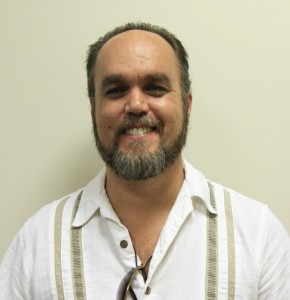 Scott State Prison, in Milledgeville, Ga., was originally built as a hospital during the Great Depression. I was there for a few years, until it closed in 2004.
Scott State Prison, in Milledgeville, Ga., was originally built as a hospital during the Great Depression. I was there for a few years, until it closed in 2004.
One of the unique features of this place, for a prison anyway, was that it had porches attached to the dormitories. These made a nice spot to go hang out in the heat of summer, and they provided a place for smokers to light up. It helped make up a little for the run-down conditions.
One evening, I was headed out to the porch when a young man stopped me. He was someone I knew, a homeboy, from south Georgia. He told me the porch was closed for a few minutes. As I stood there, I could hear the sounds of a beating taking place in the darkness beyond the door. I was puzzled by the grunts and thwacks, the scuffling feet and thuds of a body hitting the ground. I must have looked concerned, because my homeboy told me not to worry, everything was fine.
Later, I found out that it was a “beat in,” a gang initiation during which the new member fights several other members of the gang for a set period of time. I was surprised, because during my time up until then, I had seen very little organized gang activity. Even though it has been a common problem in other states for decades, the gangs have only begun to make serious inroads into the prison system inGeorgiain the last 10 years or so. Since I got out of prison in 2009, gangs have rarely been on my radar.
This changed a few weeks ago, when I stayed with some friends in Takoma Park, Md. While there, I visited a new acquaintance at his workplace, a Youth Opportunity Center (YOC) run by Identity. Identity is an organization that addresses the needs of youth in Montgomery and Prince George’s County, Md. The YOC is largely geared towards gang prevention and intervention. Gangs are prevalent in the area. Although the organization works with all youth, the majority of its clients are first- and second- generation Latinos, particularly Salvadoran. Identity runs two YOCs, and also conducts various programs in local schools, a detention facility, and the community at large, including a mobile HIV testing unit, diversion and reentry for juvenile offenders, a wellness center, and after-school programs in more than a dozen schools.
At the YOC, clients arrive by way of school referral, court order, the urging of their own friends, or an innate desire to make a change. At intake, they are evaluated for risk factors associated with gang involvement and an individualized plan is developed and carried out with the support of staff. They offer GED tutoring, work force development skills, life skills, HIV testing and counseling, mental health and substance abuse treatment, and tattoo removal – all free of charge.
The kids are reevaluated every six months. The results show a significant reduction in delinquent behavior and gang-related activities by the Identity clients.
What drew me to visit was Identity’s new restorative justice program that uses Community Conferencing in the juvenile justice system of Prince George’s County. Community Conferencing is a conflict resolution method developed in Australia and based on practices of the Maori of New Zealand. It has been implemented for over a decade in Baltimore, with positive results, in schools, neighborhoods and courts.
Identity receives referrals from schools, the state's Department of Juvenile Services, and the state’s Attorney’s Office inPrince George’s County. Identity staff hope to conduct up to 50 conferences a year. The benefits of this approach are many. First, it saves the courts the costs of holding 50 (or more) hearings, including the costs of court employees and attorneys. Second, these types of approaches, which involve offender, victim, and others impacted by the incident, arrive at solutions that are more likely to be satisfactory to all parties, and have a greater chance of compliance. Most importantly to me is the understanding that conflict, and crime, can be addressed by the whole community, and that this approach is superior to traditional adversarial systems.
The Community Conferencing work is being funded through the Maryland judiciary’s Administrative Office of the Courts. This is important, because programs such as Identity around the country are struggling for funding.
We, as members of our communities, can make a difference by giving our support to programs like Identity. Not only are they doing great work, they are also using an evidence based, accountable, and cost effective approach that gets results.
